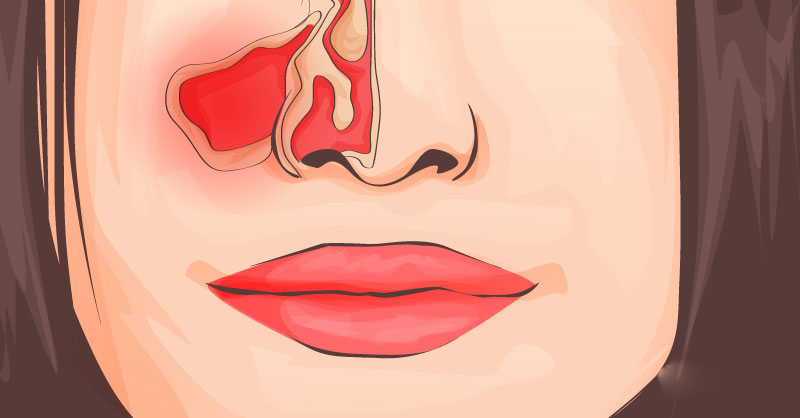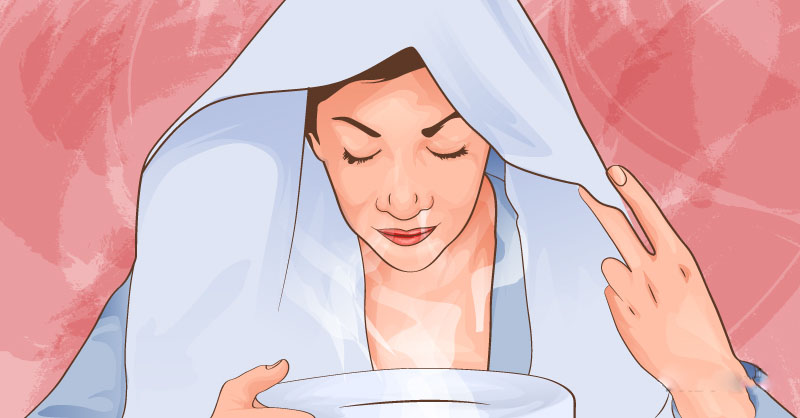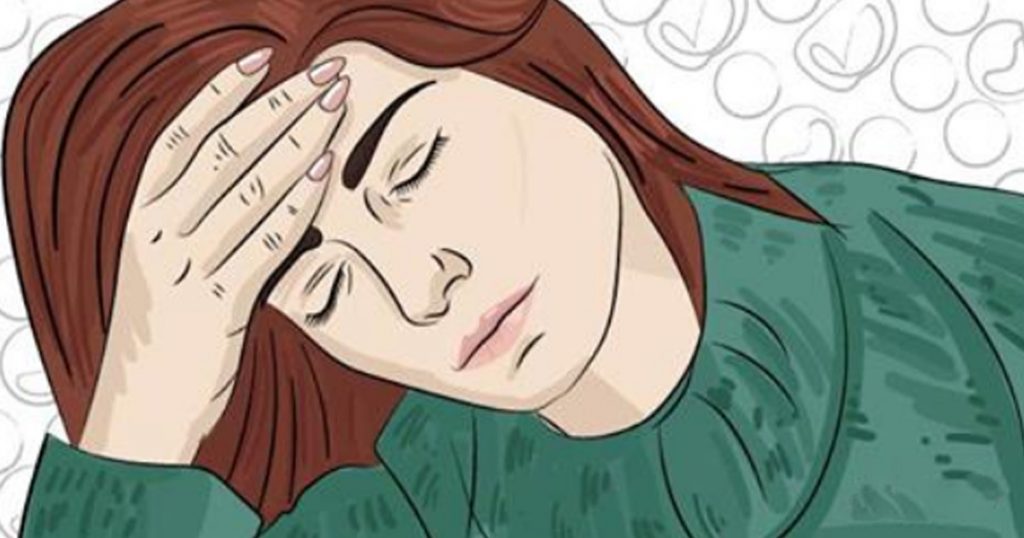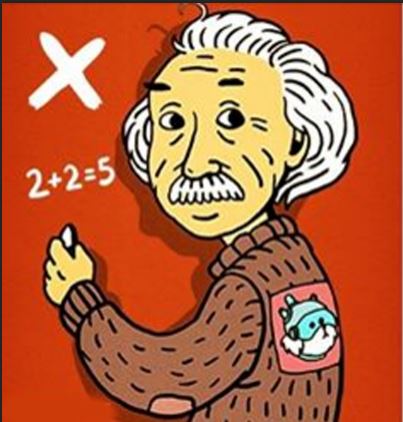Sinusitis is a condition characterized by the inflammation of the sinuses. Sinusitis is usually caused by viruses, but can also be caused by bacteria and fungi. This condition can be acute (lasting no longer than a few weeks) and chronic (lasts more than 12 weeks). You can develop sinusitis when you are sick with a cold or the flu. Other conditions, such as allergy, can also cause sinusitis.

Symptoms of sinusitis include the following:
— facial pressure or pain;
— pain and tenderness around checks, eyes, and forehead;
— a blocked or runny nose;
— green or yellow discharge from the nose, postnasal drainage;
— headache;
— reduced sense of smell and taste;
— bad breath.
You may also experience a toothache, fatigue, and fever (in acute sinusitis).

Contact your doctor if:
— your symptoms show no sign of improvement after 7 days;
— your symptoms are severe or getting worse;
— your sinusitis recurs often.
Here’s what can cause sinusitis:
— a cold or the flu;
— tooth infection;
— fungal infection;
The following factors may cause sinusitis to become chronic:
— allergies and related conditions (allergic rhinitis, asthma, hay fever);
— nasal polyps;
— smoking and air pollutants;
— compromised immune system.
These measures might help you prevent sinusitis:
— avoid people sick with the flu or cold and wash your hands often, especially if it’s the season when colds and flu are common;
— don’t smoke and avoid air pollutants;
— if you have an allergy, try to avoid things that trigger allergic reactions.

Here’s what you can do to relieve sinusitis symptoms:
— get enough rest;
— stay hydrated – water and juice are good options, don’t drink alcohol or caffeinated beverages when you’re sick;
— moisturize your sinus cavities by inhaling vapor from medium hot-water – either from a bowl with heated water or in a hot shower;
— rinse your nasal passages with a saline solution;
— sleep with your head slightly raised.





